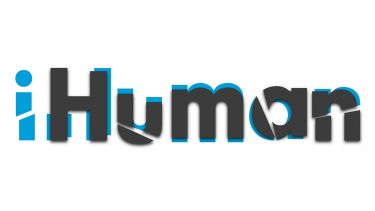Co-Production

iHuman - a place for authentic co-produced research
Co-production defines many research endeavours in the iHuman community. In particular, a number of iHuman researchers have partnered with disabled people, their families and allies as well as their representative organisations on a number of research projects. We seek to make research more democratic and more accountable. And we believe that the research capacities of disabled people should be properly costed into research. Below we give a number of examples of co-produced research projects (and linked webpages).
The Living Life to the Fullest project was a research project that sought to forge new understandings of the lives, hopes, desires and contributions of children and young people with ‘life-limiting’ or ‘life-threatening’ impairments (or LL/LTIs). With , the project was a space where disabled children and young people can tell new stories of disability; their own stories. Living Life to the Fullest: Life, Death, Disability and the Human was funded by the Economic and Social Research Council (ES/P001041/1) (April, 2017-March, 2020) and was based in The School of Education and at the at the University of ºù«Ӱ̉µ.
Reimagining TAS with Disabled Young People
TAS are envisaged to become part of our everyday lives. Disabled young people (DYP) are key end-users and potential co-designers of these future systems, although their experiences and aspirations are rarely acknowledged. This interdisciplinary project brings together DYP, social and computer science researchers and school and industry partners. We centralise the expertise and aspirations of DYP around questions of trust, resilience and capacity in relation to autonomous systems; thus embedding inclusion, equity, responsible research and innovation in studies of TAS. Our project will make use of co-production methods and makerspaces (collaborative workspaces for making, learning, exploring and sharing)
This website is a partnership project. The main idea is that by working together we can learn and share the amazing work of self-advocacy groups across the UK. We want to connect and share our work. In 2018, Sunderland People First worked with the University of ºù«Ӱ̉µ as part of the Fellows Programme. The Crook Fellowship is an opportunity for not-for- profit organisations to work alongside the university to carry out research and projects to improve people’s lives. Together we designed and produced this website which seeks to map all self-advocacy groups in the UK. We are drawing on crowd-sourcing to make sure all groups can add their details to the website; so that people with learning disabilities can find details of a self-advocacy group near with they live.
The Canine Care Project was a small research project that explored the experiences of disabled young people who have assistance dogs. We partnered with Canine Partners, a registered charity that transforms the lives of disabled people through partnering them with assistance dogs. Through a small collective Research Team of academic researchers, Canine Partners collaborators, and Sally Whitney, a disabled young co-researcher who has a Canine Partner, we wanted to further explore related early findings emerging from our larger umbrella project, the ESRC funded project 'Living Life to the Fullest'.
Human Activism is a collaborative project funded by the Economic and Social Research Council, University of ºù«Ӱ̉µ and Manchester Metropolitan University with the support of a number of Community Partners. This is a responsive project that seeks to share information about the day-to-day challenges faced by people with learning disabilities and their supporters in times of austerity. To learn more about how people with learning disabilities, their families and supporters are fighting for their rights check out the three co-produced short films.
In early 2022, the University of ºù«Ӱ̉µ social science researchers of the Humanising Healthcare team won some Research England Funding to Co-produce Ethics with our advocacy-based organisation research partners (which include experienced researchers with learning disabilities including some who also have autism). We worked together between March and August 2022.
As a result of their participation as co-researchers in the Living Life to the Fullest Project, Lucy Watts MBE and Sally Whitney undertook some paid work with , an independent, not for profit social enterprise founded in 2012 to tackle youth unemployment.
Disabled young people are far more likely to be unemployed and under-employed than non-disabled young people, and Youth Employment UK’s aim has been to explore this ‘disability employment gap’ alongside disabled young people.
Key findings
- Why is there a disability employment gap?
- What does the law provide for?
- What is the business case for employing disabled people?
In the YEUK webinar below, three young people share their experiences on the challenges of transitioning from education into employment. They explore what barriers they experienced, how they felt about their futures and what changed things for them in finding and being able to see themselves as . Thanks to ºù«Ӱ̉µ, My Life My Choice Project and Sunderland People First along with our three young interviewees, Sally, Paul and Matthew.
A consequence of this co-produced project was Disabled People and Work: What employers need to know.

iHuman
How we understand being ‘human’ differs between disciplines and has changed radically over time. We are living in an age marked by rapid growth in knowledge about the human body and brain, and new technologies with the potential to change them.
